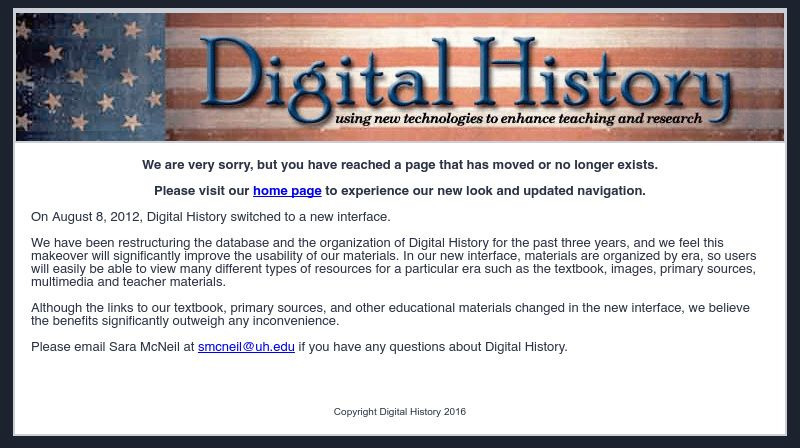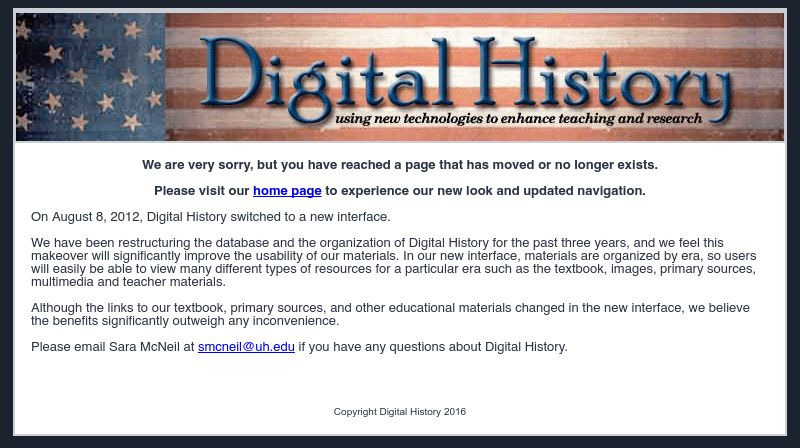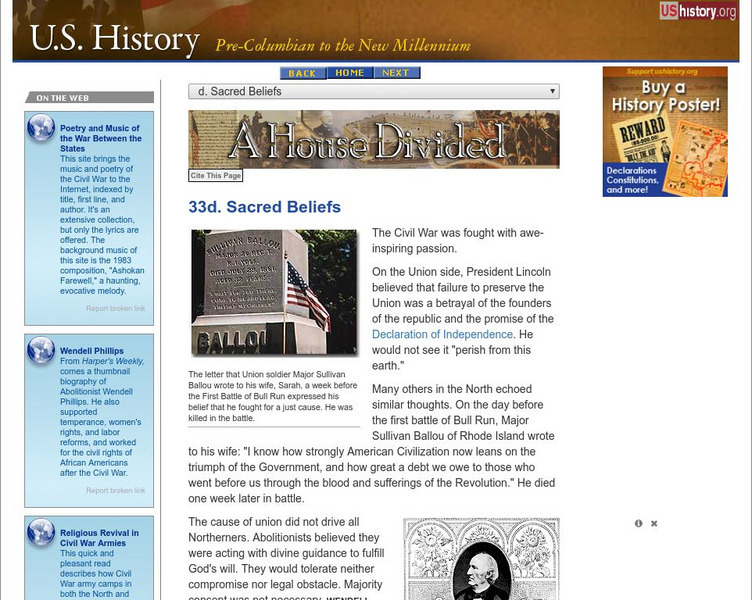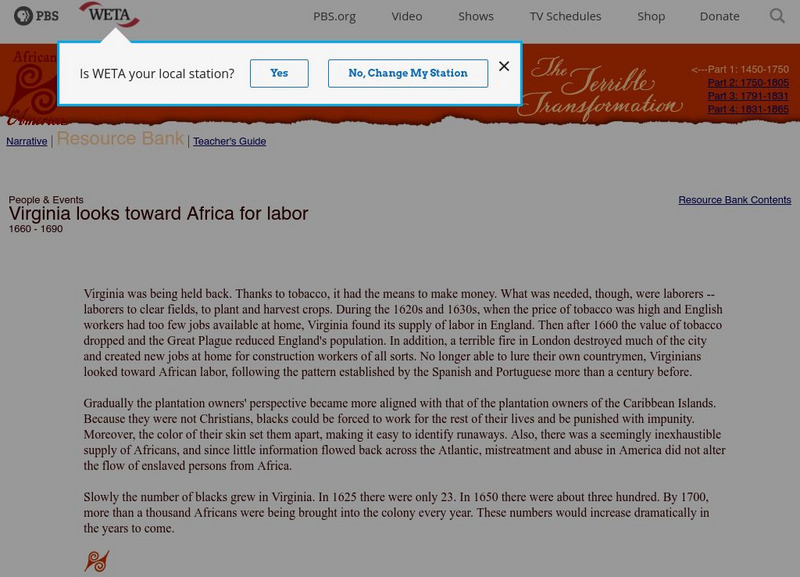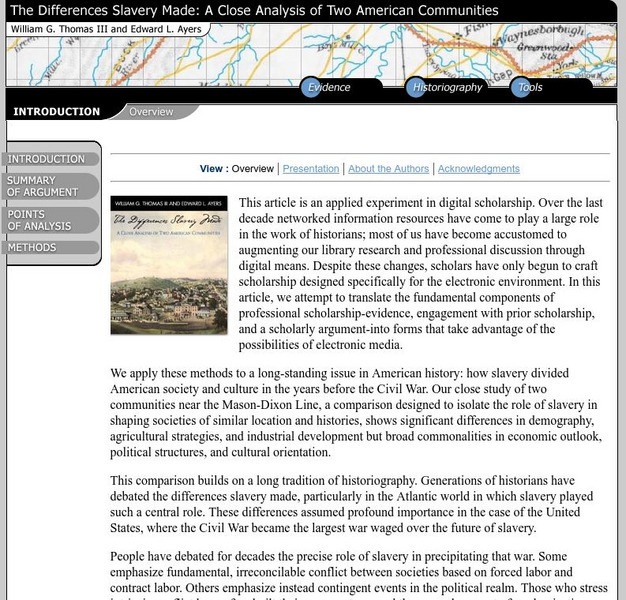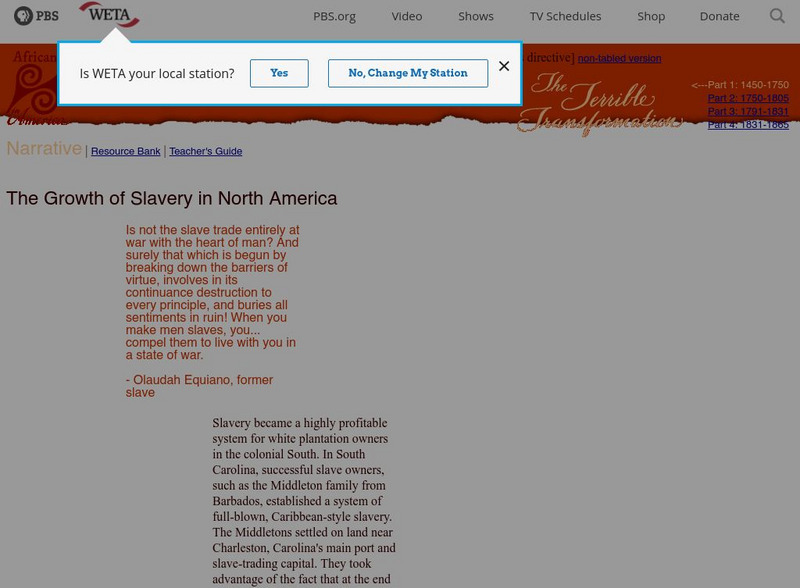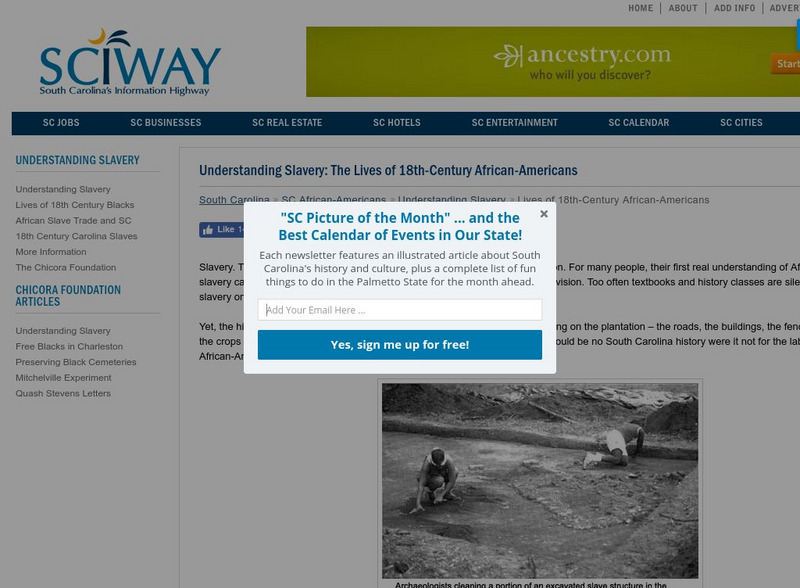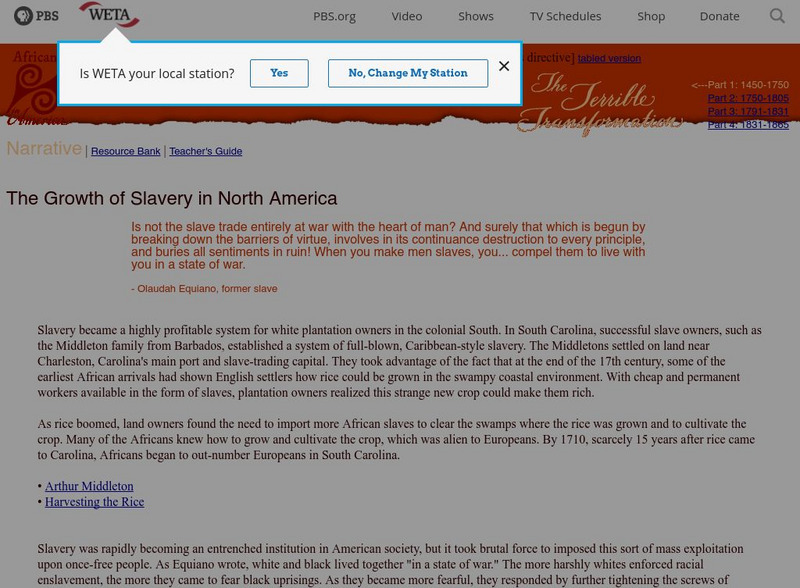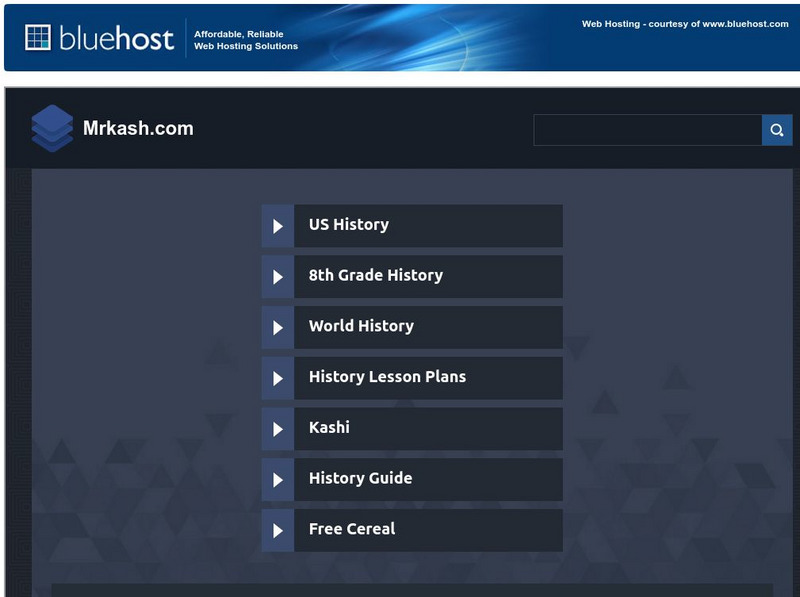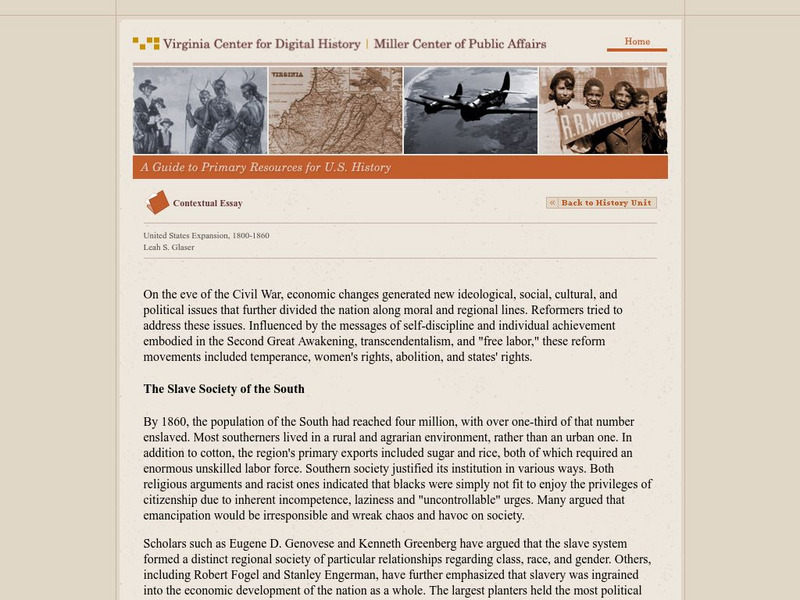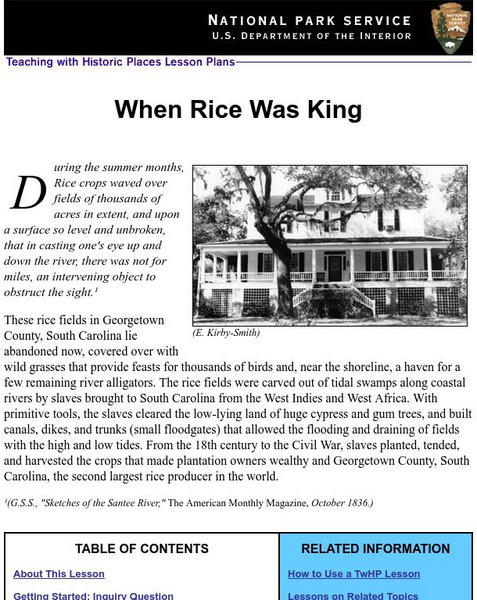University of Groningen
American History: Outlines: William Byrd (1674 1744)
A short essay about William Byrd from the colonial period of American history who detailed life in the Southern colonies.
Independence Hall Association
U.s. History: Rebellions on and Off the Plantation
Slaves resisted their bondage in many ways. Read about the revolts planned and executed by Denmark Vesey and Nat Turner, the southern reactions to those revolts, and the ways slaves individually resisted their enslavement.
Other
Hillcrest High School: The Colonies Come of Age: The Agricultural South [Pdf]
A chapter from a history text that looks at the plantation economy of the Southern colonies, which relied on slave labor. It discusses the role of women as second class citizens, the cash crops that were grown, indentured servitude, the...
Digital History
Digital History: Pre Civil War South
A comprehensive look at the economy of the South and the changes brought by the cotton gin. Read through five pages that discuss the economy, the tradition of the plantation, and the sectionalism that arises in this time period.
Digital History
Digital History: From Slave Labor to Free Labor
The most difficult task confronting many Southerners during Reconstruction was devising a new system of labor to replace the shattered world of slavery. Learn how plantation owners and freed slaves adapted to this massive shift in the...
Library of Congress
Loc: Teachers: Women in the Civil War: Ladies, Contraband, Spies
With this lesson, a collection of primary texts, including diaries, letters, and photographs help young scholars understand how women were affected by the Civil War. Students will explore, through reading a collection of documents, the...
National Humanities Center
National Humanities Center: Toolbox Library: Charles W. Chesnutt, Making of African American Identity: V. 2
A short story that explores the influence of the Southern plantation past on African American efforts to create new urban identities and the predicaments of post-emancipation life.
Digital History
Digital History: The Old South: Images and Realities
First read the plantation legend about life in the South. The remainder of the article refutes the legend, explains the differences in many facets of the South, and emphasizes the importance of the Southern agricultural output to the...
University of North Carolina
Unc: First Person Narratives of the American South
A unique collection of first-person accounts, this concentrates on all the populations of the South, such as ex-slaves, enlisted men, middle-class women, displaced plantation owners. The works are sorted by the author's name. To search...
University of Groningen
American History: Outlines: Colonial Economy
Whatever early colonial prosperity there was resulted from trapping and trading in furs. In addition, the fishing industry was a primary source of wealth in Massachusetts. But throughout the colonies, people relied primarily on small...
Independence Hall Association
U.s. History: Sacred Beliefs
At the beginning of the Civil War people in both the North and the South held firm beliefs about the reasons for the war. Some wanted to preserve the Union, others to end slavery. In the South the question was about states' rights and...
Books in the Classroom
Carol Hurst's Children's Literature Site: Civil War in Children's Literature
This page from Carol Hurst's Children's Literature offers book reviews and planning help for an upper elementary unit on the Civil War. Includes information on books for teachers, books for students, easy-purchase links, and links to...
ClassFlow
Class Flow: African Heritage: Frederick Douglass
[Free Registration/Login Required] This flipchart aims to help students understand how Frederick Douglass's writing painted a powerfully negative portrait of life on southern plantations. It uses video as well as text to inform students.
A&E Television
History.com: How the South Helped Win the American Revolution
British commanders attempted to reverse their floundering fortunes by launching a campaign in the South. There the British would find not just crops such as tobacco, rice and indigo that were vital to their economy, but stronger Loyalist...
PBS
Africans in America: Virginia Looks Toward Africa for Labor
This website explains why Virginia needed laborers, why it led to the use of African labor and how it was justified by Christians. Hyperlinks to related topics on the site.
University of Virginia
American Historical Review: The Differences Slavery Made
An in-depth scholarly investigation on the differences slavery made in the shaping of societies in the North and South by using two similar communities, one north and one south of the Mason-Dixon Line.
PBS
Pbs: Cet: Africans in America: The Growth of Slavery in North America
Discusses the economics of slavery in South Carolina and its importance to the profitable growing of rice. It continues with ways the slaves were controlled and punished in South Carolina and Georgia. Click on Teacher's Guide for teacher...
US Department of State
Bureau of International Information Programs: History Outline: Sectionalism
Article reviews several conditions of American society that sowed the seeds of civil war, particularly slavery and sectional conflict.
Other
Understanding Slavery: The Lives of Eighteenth Century African Americans
Comprehensive description of slaves in South Carolina. Click on the topics on the left to take you to a wealth of information about the lives of slaves in South Carolina.
PBS
Pbs: Africans in America: Part 1: The Growth of Slavery in North America
Focuses on slavery in North America, the worry about uprisings, and slavery's economic impact. Links to related information.
Other
Mr. Kash's History Page: Comparing and Contrasting the North and South
Chart showing the differences between the North and the South in the United States in the mid-1800s. Students are asked to copy the information and to write a paragraph explaining the differences.
University of Virginia
Virginia Center for Digital History: United States Expansion, 1800 1860
An essay that looks at issues affecting Americans leading up to the Civil War. These included economic changes that led to new ideological, social, cultural, and political issues that further divided the nation along moral and regional...
Curated OER
National Park Service: Rice Cultivation in Georgetown County
Describes the planting, cultivating, harvesting, and preparing rice in the antebellum South. Contains review questions.
Curated OER
National Park Service: Teaching With Historic Places: When Rice Was King
Lesson plan teaching the rice culture of Georgetown County, South Carolina in the 1700's.




![Hillcrest High School: The Colonies Come of Age: The Agricultural South [Pdf] eBook Hillcrest High School: The Colonies Come of Age: The Agricultural South [Pdf] eBook](https://d15y2dacu3jp90.cloudfront.net/images/attachment_defaults/resource/large/FPO-knovation.png)
